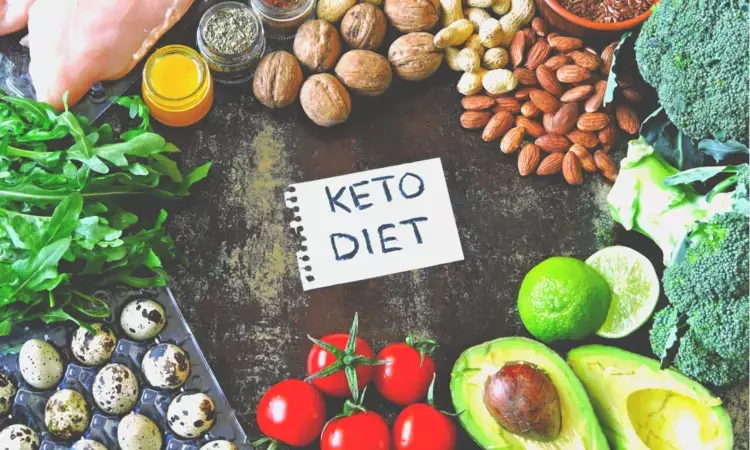- Home
- Medical news & Guidelines
- Anesthesiology
- Cardiology and CTVS
- Critical Care
- Dentistry
- Dermatology
- Diabetes and Endocrinology
- ENT
- Gastroenterology
- Medicine
- Nephrology
- Neurology
- Obstretics-Gynaecology
- Oncology
- Ophthalmology
- Orthopaedics
- Pediatrics-Neonatology
- Psychiatry
- Pulmonology
- Radiology
- Surgery
- Urology
- Laboratory Medicine
- Diet
- Nursing
- Paramedical
- Physiotherapy
- Health news
- Fact Check
- Bone Health Fact Check
- Brain Health Fact Check
- Cancer Related Fact Check
- Child Care Fact Check
- Dental and oral health fact check
- Diabetes and metabolic health fact check
- Diet and Nutrition Fact Check
- Eye and ENT Care Fact Check
- Fitness fact check
- Gut health fact check
- Heart health fact check
- Kidney health fact check
- Medical education fact check
- Men's health fact check
- Respiratory fact check
- Skin and hair care fact check
- Vaccine and Immunization fact check
- Women's health fact check
- AYUSH
- State News
- Andaman and Nicobar Islands
- Andhra Pradesh
- Arunachal Pradesh
- Assam
- Bihar
- Chandigarh
- Chattisgarh
- Dadra and Nagar Haveli
- Daman and Diu
- Delhi
- Goa
- Gujarat
- Haryana
- Himachal Pradesh
- Jammu & Kashmir
- Jharkhand
- Karnataka
- Kerala
- Ladakh
- Lakshadweep
- Madhya Pradesh
- Maharashtra
- Manipur
- Meghalaya
- Mizoram
- Nagaland
- Odisha
- Puducherry
- Punjab
- Rajasthan
- Sikkim
- Tamil Nadu
- Telangana
- Tripura
- Uttar Pradesh
- Uttrakhand
- West Bengal
- Medical Education
- Industry
Very low-calorie ketogenic diet improves Total testosterone in obese non-diabetic males

A new study conducted by Angelo Cignarelli and team showed that in obese male non-diabetic adults, very low-calorie ketogenic diet (VLCKD) causes fast improvements in total testosterone (TT) levels linked with weight reduction, especially when obesity-related hypogonadism is present.
The findings of the study were published in Andrology Journal.
The very low-calorie ketogenic diet offers obese individuals a chance to lose weight that is clinically significant. Functional hypogonadism is a common hormonal condition marked by low testosterone and subnormal LH levels that is linked to obesity and the buildup of visceral fat. In order to assess the early effects of VLCKD on blood total testosterone levels in non-diabetic obese individuals, this study was carried out.
For this study, twenty-two obese male patients were enrolled and received a 28-day course of VLCKD treatment (mean age 39.3 ± 11.7 years, mean BMI 38.2 ± 6.4 kg/m2). Prior to, during, and following a diet intervention, anthropometric and hormonal characteristics were evaluated.
The key findings of this study were:
A substantial and stable decrease in body weight, BMI, fat mass, blood sugar, insulin, and HOMA index was seen after 7 and 28 days on a VLCKD in comparison to baseline.
After 7 days (+35 ± 64 ng/dl) and 28 days (+74 ± 97 ng/dl ng/dl) on a VLCKD, TT greatly increased.
Along with TT, sex hormone-binding globulin (SHBG) levels in the blood significantly increased after 7 (+2.1 ± 4.1) and 28 (+7.7 ± 10.0) days.
After 7 or 28 days of VLCKD, however, neither computed free testosterone nor LH changed.
Contrary to eugonadal subjects, hypogonadal subjects experienced greater weight loss overall (8.5 ± 1.5%), greater weight loss (-9.94 ± 1.66 kg), greater reductions in fat mass (-7 ± 2.1 kg), and greater reductions in waist circumference (-6.31 ± 2.65 cm), as well as greater improvements in glycaemia (-8.75 ± 10.92 mg/dl).
Additionally, compared to eugonadal patients, hypogonadal subjects showed a trend toward a larger TT rise (+98.12 ± 71.51 ng/dl).
Reference:
Cignarelli, A., Santi, D., Genchi, V. A., Conte, E., Giordano, F., Leo, S. D., Natalicchio, A., Laviola, L., Giorgino, F., & Perrini, S. (2022). Very low‐calorie ketogenic diet rapidly augments testosterone levels in non‐diabetic obese subjects. In Andrology. Wiley. https://doi.org/10.1111/andr.13357
Neuroscience Masters graduate
Jacinthlyn Sylvia, a Neuroscience Master's graduate from Chennai has worked extensively in deciphering the neurobiology of cognition and motor control in aging. She also has spread-out exposure to Neurosurgery from her Bachelor’s. She is currently involved in active Neuro-Oncology research. She is an upcoming neuroscientist with a fiery passion for writing. Her news cover at Medical Dialogues feature recent discoveries and updates from the healthcare and biomedical research fields. She can be reached at editorial@medicaldialogues.in
Dr Kamal Kant Kohli-MBBS, DTCD- a chest specialist with more than 30 years of practice and a flair for writing clinical articles, Dr Kamal Kant Kohli joined Medical Dialogues as a Chief Editor of Medical News. Besides writing articles, as an editor, he proofreads and verifies all the medical content published on Medical Dialogues including those coming from journals, studies,medical conferences,guidelines etc. Email: drkohli@medicaldialogues.in. Contact no. 011-43720751


